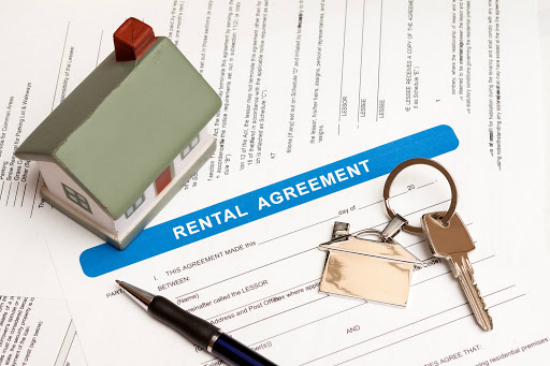Picture this scenario, if you could: you’ve been searching for a property to rent in Malaysia for a long while. You finally find one that doesn’t trigger any warning bells, plus it’s within your budget.
And there’s even a pleasant bonus; your potential landlord is amicable, and you both seem to get along well.
When the time comes for you to sign the tenancy agreement though, you suddenly realise that you’re confused by all the terms and conditions (read: legal jargon) contained within.
What do all these mean? Are you potentially signing yourself into an unfavourable deal? We go through what are some of the items you’d need to pay close attention to.
But First, What’s A Tenancy Agreement All About?
A tenancy agreement is a legally-binding contract that’s signed by the landlord and tenant. This agreement clearly states the responsibilities of both parties regarding rental of the property.
Although landlords commonly draft their own tenancy agreements, it’s best to have a lawyer draft it, or at least have it reviewed by one. This ensures the terms and conditions are fair for both parties.
Both you and the landlord need to agree on the terms of the contract before signing it – once signed, both of you will be bound by the terms stated in it.

So, the best thing to do would be to read each page thoroughly, and try to spot anything that might work against you in the future.
Here are some of the more important terms and conditions you should keep your eye out for when vetting your tenancy agreement:
1) Termination
There may be several reasons behind the early termination of your lease. The more common ones include defaulting on rent, or using the property for illegal purposes.
Or, it could be that you’re an expatriate and your employment in Malaysia has been terminated, or you’ve been relocated to another country.
If there are any additional conditions that may result in the termination of your lease, the landlord must state clearly what these terms are in the tenancy agreement.
In addition to stating all the possible reasons and scenarios, the document should contain what the penalties are for each, in the event that one DOES take place.
PropertyGuru Tip
Termination clauses are not just for the landlord – they should also cover obligations from the landlord to you, as the tenant.
Either party can terminate the agreement if the other doesn’t fulfil their obligations, with proper notice, of course.
2) Diplomatic Clause
A diplomatic clause is usually found in tenancy agreements that have a lease of at least 12 months. This clause is especially important for you if you’re an expatriate working in Malaysia.
It’s safe to say that foreigners whose stay in Malaysia might be of an indefinite length, would appreciate this clause as it protects them in the event they aren’t able to remain in the country any more.
For example, your employment in Malaysia might end early, or you might need to return to your home country due to an emergency.
With this clause, you don’t need to pay the remaining monthly rent for the duration of the tenancy that is unoccupied. A diplomatic clause should specify the following:
- The notice period for the termination of the lease
- Compensation that the tenant must provide if the notice period isn’t met
If you have to invoke this clause, you’d obviously need to show evidence backing up your reasons for doing so.
Such evidence may include documents that show your employment ending at your company, or a transfer to another country.
You should show these documents to your landlord as soon as possible, factoring in the notice period stated in the clause.
3) Option To Renew
This clause allows you to extend your lease for another term, subject to prior notice. If there’s one, check to see if there’s something called an ‘escalation clause’.
What this term essentially means is the landlord’s right to raise the rent in subsequent years, and is typically based on:
- A fixed amount
- Percentage of the first year’s rent
- Based on the increase of living costs
This option would also state that the landlord is in agreement to let you have priority before putting the property back on the market, or considering another tenant’s offer.
If you decide you want to renew or extend your lease, your landlord will then prepare a contract for extension.
This new contract should have clauses that are the same as the standing one, unless specified otherwise.
4) Subletting And Roommates
If you want to make a little extra income by doing subletting, you need to make sure your landlord is fine with it. Either check your tenancy agreement or ask your landlord as soon as possible.
PropertyGuru Tip
Subletting is the act of leasing out property that you are currently renting.
For example, you’ve rented the property from a landlord, and then sublet it out to sub-tenants, collecting rent from them.
If it’s not permitted, your landlord can immediately terminate your lease if you’re caught subletting without their permission.
The worse case scenario is that you may suddenly find yourself homeless, AND with legal action taken against you!
As for having roommates, or even a significant other, you’re usually allowed to have one other person living with you while you’re there.
Even if the contract is just in your name, as long as you have the courtesy to notify your landlord first, you should find that you’d not have any problems in getting the permission you need.
5) Insurance
Did you know that some landlords may have opted to take out what’s known as a ‘landlord insurance’?
This policy will cover them against any potential damages that their property may suffer from as a result of irresponsible tenants, in addition to any losses to rental income in case the tenant suddenly disappears.
They’d also be protected against liabilities, such as when their tenant suffers an injury due to an existing or previously unnoticed malfunction/damage in the property.
As such, you’d need to check if the tenancy agreement has any mention of this and what you should not do (or allow to be done) which may impact that insurance.
Usually, when this is included, there’ll also be mention of the repayment you’d have to make to the landlord in case you accidentally voided the insurance – the repairs, plus the differential sum of an increased premium.
If you’re still on the hunt for a property, but are not sure what to look for, we have a list of things you can look out for before you commit. Most importantly, trust your gut – if you don’t feel comfortable renting a place, look somewhere else.
Disclaimer: The information is provided for general information only. PropertyGuru International (Malaysia) Sdn Bhd makes no representations or warranties in relation to the information, including but not limited to any representation or warranty as to the fitness for any particular purpose of the information to the fullest extent permitted by law. While every effort has been made to ensure that the information provided in this article is accurate, reliable, and complete as of the time of writing, the information provided in this article should not be relied upon to make any financial, investment, real estate or legal decisions. Additionally, the information should not substitute advice from a trained professional who can take into account your personal facts and circumstances, and we accept no liability if you use the information to form decisions.








